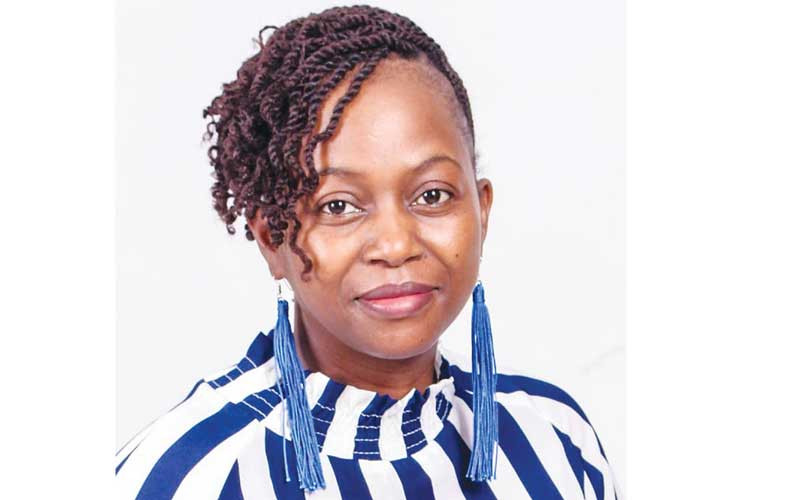
FOR many Zimbabweans, appearance of the name Chipo Chung on the casting for Black Cake is enough reason to watch the Oprah-produced mini-series. The multi-generational drama is a captivating story about relationships, memory and betrayal. Local audiences will take away more than a sense of pride from the Zimbabwean actress’ riveting performance. Unravelling of one family’s long hidden past, allows the audience to witness the crippling burden of a secret past.
Chungs' character in Black Cake, is Eleanor Bennett — a widow who dies and leaves behind a series of audio recordings whose message includes an explosive confession. She owns up to a hidden traumatic past, including the bombshell revelation that she had been living under a stolen identity. It turns out that telling her children that she was raised in an orphanage was a lie that was made up in collusion with their late father.
It is common for families to have secrets that are maintained through a web of lies and deception. Only those who are left in the dark tend to naively take everything at face value. In Black Cake the burden of long held secrets exerts a toll on the physical, mental, emotional and spiritual wellbeing of those who have been saddled with the responsibility of preserving them. There are also subliminal negative side effects that permeate through romantic, platonic and family relationships.
Based on award-winning author Charmaine Wilkerson’s debut novel of the same title, the mini-series is set in the Caribbean, England and America. The film is centred on women and is exclusively narrated from their perspective. Although Wilkersons’ novel is not biographical or autobiographical, the author says it was informed by real experiences. Its adaptation to film covers a wide range of social issues that include racism, sexism, gender and sexuality, but the movie treatment evokes little empathy for male characters implicated in the unfolding drama. Men are seen as perpetrators whose narrative arc lacks emotional depth and their trauma is largely ignored.
Bert Bennett, the main characters’ husband, dies without knowing his wife’s full story, and his personal struggles are severely underplayed. Their son Byron is beset with challenges that frustrate him and are mostly unresolved, while both his sisters’ lives are given more critical attention. Clarence “Little Man” Henry, the over-aged suitor to young Coventina is a dangerous exploitative thug. Mabels’ biological father is a predator and serial rapist monster. And Steve, Bennys’ ex-boyfriend is a violent and manipulative bully.
Eleanor's father, Lin, is presented as a reckless unredeemable gambler and a coward who drives his daughter into a forced marriage to a gangster in exchange for relief on a debt he owes. The much despised character is roundly condemned by others, but in a rare vulnerable moment Lin reveals unprocessed emotional trauma as he laments: “I went to school here. I run a business here. I took a wife and even raised a child here and I’m still a foreigner to these people.”
The thinly served backstory for male characters is not an act of dismissal, or sign of irrelevance, but deliberately serves the story by focusing on female agency. Terminally ill Eleanor speaks from a higher perspective when she says: “Sometimes the stories we don’t tell people about ourselves matter even more than the stories we do tell.”
The apparent bias provides contrast between a life lived from admission, acknowledgement and acceptance; against that of resistance and denial. In the film, the latter is strongly exemplified by the men who refuse to acknowledge their trauma and continue to hurt, and hurt others.
- The crippling burden of a hidden past
Keep Reading
The film does not idealise all women as being perfect. Mathilda, who abandons her daughter, may be seen as partially responsible for exposing Coventina to the exploitation and abuse she suffers at the hands of different men. Lins’ mother allows her prejudice to override empathy for another woman by disowning her son for marrying a Black woman. Technically, Eleanor goes to the grave with the secret of her first child having hidden that part of her life from her husband who dies before her. Benny never makes it up to Joanie, her ex-girlfriend who must also have been affected by the way things ended between them. While Mabel is later drawn into an existential crisis of her own, she demonstrates a lack of authenticity to her son by keeping him in the dark about his father. And Lynette, Byrons’ fiancée unkindly blindsides him at the worst moment by invalidating their relationship.
In spite of the toxic effect on second and third parties, people keep secrets for different reasons. Some people keep secrets for selfish reasons deriving from personal insecurities and vulnerability. For pretending to be her biological mother and enabling her to pass for white, Mabels' foster mom says: “We didn’t tell you certain things for the same reasons that you haven’t told Gio (Mabels' son) the whole truth about his father.'' The real Eleanor, whose identity is later appropriated by the friend she is addressing, says: “Coventina when I told you about my past, I was afraid that you might judge me, but you listened. Thank you for making me feel safe enough to share.”
Some people keep secrets because others have convinced them that it is for their own good. “Back home I advised my best friend to hide her true self in order to survive,” says Coventina, recalling with regret how she encouraged her friend Bunny to hide her sexuality.
In the film, no one is coerced to disclose their secrets but ethical questions are raised about keeping others — especially close family members, in the dark. Benny asks her brother: “Do you think dad would have wanted to know everything?” And Mabel asks Wanda, her adoptive mother: “Did it not occur to you that I might want to know?”
Part of the story suggests that hiding from oneself and others can lead to self-harm. After her surfing accident Byron says to his mother, “If I didn’t know you better I would think you were trying to hurt yourself.” It turns out that he did not know his mother that well. She later admits in her posthumous confession: “You asked me before Byron, about that day on the beach and you were right. It wasn’t an accident.” Her daughter Benny later muses about their mother who died from a brain tumour, “And maybe without all the stress and secrets weighing on her, maybe she’d still be here.” Adding: “I don’t wanna end up like that.”
Coventina, who lived as Eleanor — had many opportunities to tell the truth and she passed. Divulging family secrets can lead to a huge shift in the lives of the people involved. Eleanor’s children find themselves having to adjust to a new reality about their identity and ethnicity after discovering their ancestry on the maternal side.
Black Cake does not provide a template for resolving secrets. After all, the protagonist is literally speaking from the grave. She has escaped the potential fallout and consequences of her selfish actions. Her son demonstrates bravery when he toasts to his mothers’ confession: “Here’s to the past. May it not blow up our present.” His statement also highlights the way secrets are always anchored in the past.
From a traditional cinematic point of view, the film does well in telling the story of young Coventina (Outstandingly portrayed by Mia Isaac) who overcomes the odds from the bad hand dealt to her by fate. Older Coventina played by Chung, however — steers the story through its larger thematic ambitions. In appearance, adult Coventina living as Eleanor Bennett has a wholesome life, free from the psychological burden of the past.
Yet in the end she is cast as deceptive, depressed and regretful. An alternative interpretation may read her demise as succumbing to the tyranny of memory and the fundamental spiritual error of identifying with form and thought.







